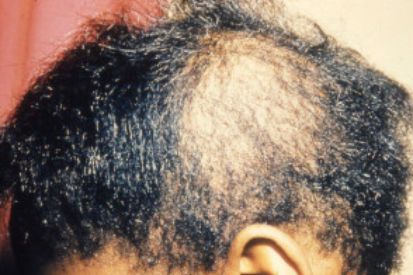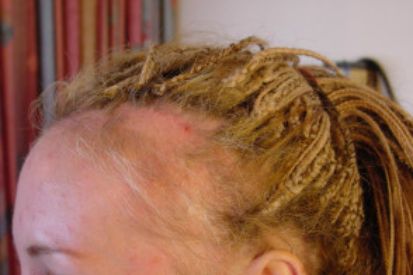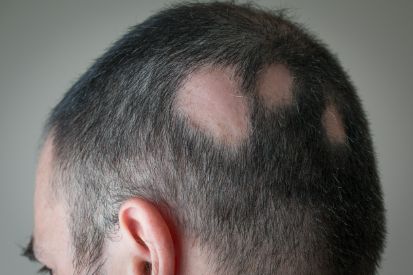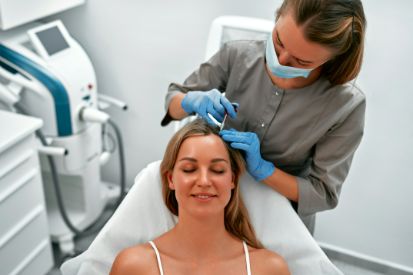Alopecia and Hair Loss
Understanding Alopecia Areata: Causes and Treatments at Riva Dermatology
Alopecia areata is an autoimmune disorder that causes hair loss in small, round patches on the scalp and other areas of the body. The condition occurs when the immune system mistakenly attacks hair follicles, leading to hair loss. While the exact cause is unknown, genetics and environmental factors may play a role. Alopecia areata can affect people of all ages and genders, and its severity varies from person to person.
At Riva Dermatology, we offer various treatments for alopecia areata, including topical treatments, corticosteroid injections, and advanced therapies. Our dermatologists work closely with patients to develop personalized treatment plans that promote hair regrowth and improve quality of life.
Expert Alopecia Areata Care in the Lake Norman Area
Regain your confidence with effective alopecia areata treatment at Riva Dermatology. Contact us today to schedule a consultation. Proudly serving Huntersville, Cornelius, Davidson, Mooresville, Denver, and surrounding communities.
Examples of Alopecia and Hair Loss




What are the Symptoms of Alopecia?
- Alopecia areata: skin loses hair in round sections of varying size.
- Alopecia areata totalis: complete loss of hair on the scalp alone.
- Alopecia areata universalis: loss of hair everywhere on the body.
- Sudden appearance of a small number of round hairless patches on the scalp, followed by total scalp hair loss.
- Some experience gradual thinning as well as itching associated with their hair loss. It will typically take 6 months for total hair loss of the scalp.
What are the Causes of Alopecia?
- Genetics and hormonal changes can cause alopecia.
- Autoimmune conditions like alopecia areata prompt the immune system to attack hair follicles.
- Medical treatments, hormonal fluctuations, infections, stress, and nutritional deficiencies can contribute to hair loss.
- Alopecia may result from tight hairstyles.
- Certain diseases and aging can lead to gradual hair thinning.
How to Prevent Alopecia
Alopecia and Hair Loss FAQs
While there is no cure for alopecia areata, various treatments can help manage symptoms and promote hair regrowth. These include topical treatments, corticosteroid injections, and advanced therapies.
A dermatologist will diagnose alopecia areata based on a physical examination and medical history. In some cases, a biopsy may be performed to confirm the diagnosis.
Treatment options include topical corticosteroids, immunotherapy, minoxidil, and other advanced therapies tailored to the patient’s condition and response to treatment.
Stress is not a direct cause of alopecia areata, but it can trigger or worsen the condition in individuals who are predisposed to it.
Riva Dermatology offers comprehensive care for alopecia areata, including the latest treatments and personalized management plans to help patients achieve the best possible outcomes.
From our QualDerm Family of Brands: Get to the Root of Your Hair or Nail Issue
Alopecia Treatments
Medical treatments for alopecia aim to address underlying causes and stimulate hair regrowth. Common approaches include but are not limited to:
- Topical and oral medications.
- Light therapy.
- And in some cases, surgical procedures.
Individuals experiencing hair loss should consult with a dermatologist to determine the most suitable treatment based on the type and cause of alopecia. Schedule with one of our experts today.
Featured Products for Hair Loss
Check your local office for current stock!
Check your local office for current stock!


